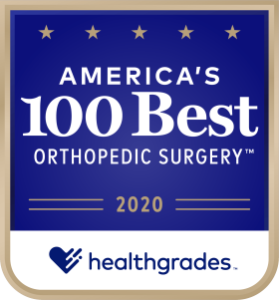Shoulder pain can impact nearly every aspect of daily life—from lifting groceries to reaching overhead. When conservative treatments like physical therapy, medication, or rest aren’t enough, it may be time to consult an orthopedic shoulder surgery specialist. These experts diagnose and treat complex shoulder injuries using advanced surgical techniques to relieve pain, restore function, and get you back to an active lifestyle.
Common Shoulder Conditions Requiring Surgery
Orthopedic shoulder specialists treat a wide range of conditions, including:
- Rotator Cuff Tears – Injuries to the tendons surrounding the shoulder joint that can cause pain, weakness, and limited range of motion (AAOS – Rotator Cuff Tears).
- Shoulder Impingement & Bursitis – Inflammation that causes discomfort and difficulty lifting the arm (Mayo Clinic – Shoulder Pain Causes).
- Labral Tears – Damage to the cartilage rim of the shoulder socket, often from sports or trauma.
- Arthritis – Severe joint degeneration that may require partial or total shoulder replacement (Cleveland Clinic – Shoulder Replacement Surgery).
Types of Shoulder Surgeries
Orthopedic shoulder surgeons are trained in procedures such as:
- Arthroscopic Shoulder Surgery – Minimally invasive surgery using small incisions and a camera to repair damage.
- Rotator Cuff Repair – Reattaching torn tendons to the bone.
- Shoulder Replacement (Arthroplasty) – Replacing damaged joint surfaces with prosthetic components.
- Fracture Repair – Stabilizing broken bones with plates, screws, or rods.
These procedures can significantly reduce pain and improve range of motion, especially when combined with a personalized rehabilitation plan.
Why See a Shoulder Surgery Specialist?
Specialists offer a higher level of expertise due to their focused training and experience with complex shoulder cases. Benefits of choosing a specialist include:
- Accurate diagnosis with advanced imaging.
- Access to the latest surgical techniques.
- Better outcomes due to targeted treatment approaches.
- Shorter recovery times with minimally invasive options.
According to the American Academy of Orthopaedic Surgeons, outcomes improve significantly when surgery is performed by a fellowship-trained orthopedic shoulder specialist.
Recovery & Rehabilitation
Recovery depends on the type of surgery, the severity of the injury, and your overall health. Most patients undergo physical therapy to regain strength and mobility, with full recovery ranging from a few weeks for minor procedures to several months for more extensive repairs.
Following your surgeon’s guidelines—especially during the first 6–8 weeks—is key to avoiding re-injury and ensuring optimal results.
Choosing the Right Specialist
When selecting a shoulder surgeon, consider:
- Board certification in orthopedic surgery.
- Fellowship training in shoulder and upper extremity surgery.
- Patient reviews and testimonials.
- Hospital or clinic reputation.
Your Local Orthopedic Shoulder Experts
At Great Lakes Orthopaedics, our fellowship-trained surgeons specialize in advanced shoulder surgery, from arthroscopy to total joint replacement. We combine medical expertise, state-of-the-art technology, and personalized care to help our patients recover quickly and get back to the activities they love.
Learn more here: Great Lakes Orthopaedics – Shoulder Surgery.
Meta Title (Yoast Recommendation): Orthopedic Shoulder Surgery Specialists | Great Lakes Orthopaedics
Meta Description: Discover how orthopedic shoulder surgery specialists diagnose, treat, and restore shoulder function. Learn about procedures, recovery, and your local experts.



